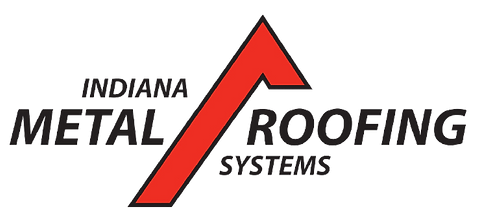Steel Roofs vs. Traditional Roofing: A Comprehensive Comparison
- Joseph Justice
- Nov 6, 2024
- 3 min read
When it comes to choosing between steel roofs and traditional roofing materials, the decision is crucial for homeowners. Not only does it impact the aesthetics of your home, but it also plays a significant role in long-term durability and energy efficiency. At Indiana Metal Roofing Systems, we have seen firsthand how selecting the right roofing material can transform the entire look and feel of a home.

The Benefits of Steel Roofing
Steel roofs offer a host of advantages that make them an increasingly popular choice for homeowners. Some of the most compelling reasons to opt for steel roofing include:
Durability and Weather Resistance
Steel is incredibly resilient, standing up to heavy snow, hail, and strong winds. The strength of the metal, combined with protective coatings, ensures that steel roofs can last for decades with little maintenance. In fact, steel roofs often come with warranties of 40 to 50 years, compared to the 20- to 30-year lifespan of asphalt shingles.
Energy Efficiency
Thanks to its reflective properties, steel roofing helps maintain lower temperatures inside the home by reflecting solar radiation rather than absorbing it. This energy efficiency can reduce cooling costs in warmer months.
Environmental Sustainability
Steel roofing is also a more environmentally conscious choice, as it is often made from recycled materials and is fully recyclable at the end of its life. By opting for steel roofing, homeowners contribute to reducing landfill waste, making it a sustainable option for those concerned about environmental impact.
Did You Know?: Metal roofs are 100% recyclable at the end of their life cycle.
The Appeal of Traditional Roofing Materials
Asphalt shingles, clay tiles, and wood shakes are among the most popular traditional roofing materials. Here’s a breakdown of their characteristics:
Asphalt Shingles
Asphalt is cost-effective and easy to install. It offers a wide variety of styles, colors, and designs, making it adaptable to many architectural styles. However, asphalt shingles tend to degrade more quickly than steel and may require frequent repairs or replacement.
Clay Tiles
Clay tiles are highly durable, particularly in warmer climates, and they provide a distinctive Mediterranean or Southwestern aesthetic. While they are long-lasting, the weight of clay tiles often requires additional structural support.
Wood Shakes
Wood shakes offer a rustic, natural look that blends well with cottage or country-style homes. While they have an aesthetic appeal, wood shakes require more maintenance than other materials, as they can rot, mold, or crack over time.
Cost Comparison: Initial vs. Long-Term Investments
While steel roofing can initially seem more expensive, it proves to be more cost-effective over time due to its longevity and low maintenance requirements. In contrast, traditional materials may have a lower upfront cost but often require more frequent repairs and replacements, which can add up in the long run.
Fact: A report by Remodeling Magazine shows that homeowners who install metal roofing can expect to recoup an average of 86% of their installation costs in home value.
Aesthetic Considerations
Both steel and traditional roofing materials offer unique visual appeal. Steel roofs now come in a variety of finishes and styles, from sleek contemporary designs to more classic looks that mimic other materials. Traditional materials like wood or clay maintain their timeless appeal, but steel’s versatility and longevity make it an excellent modern choice.
Frequently Asked Questions (FAQs)
1. Is a steel roof more expensive than traditional materials?
Initially, yes. However, the long-term savings from durability and energy efficiency can offset the initial costs.
2. How long does a steel roof last?
A steel roof can last up to 50 years or more with minimal maintenance.
3. Are steel roofs noisy during rain?
Not necessarily. With proper insulation, a steel roof can be as quiet as any other roofing material during rainfall.
4. Do steel roofs rust?
Modern steel roofs are coated with protective layers that prevent rust and corrosion.
5. Can steel roofs withstand extreme weather?
Yes, steel roofs are highly resistant to snow, hail, and high winds, making them a great option for harsh climates.
Indiana Metal Roofing Systems: Quality Craftsmanship You Can Trust
At Indiana Metal Roofing Systems, we pride ourselves on delivering top-tier service and craftsmanship. We use only the best materials to ensure that your home remains protected and beautiful for decades. With an A+ BBB rating, 5-star Google reviews, and a commitment to customer satisfaction, we are Fort Wayne's go-to roofing experts.
Conclusion
Choosing between steel roofs and traditional materials comes down to personal preference, budget, and long-term goals. Steel roofs are a superior option in terms of durability, energy efficiency, and sustainability, but traditional materials may appeal to those looking for a more classic aesthetic. Whatever your decision, ensure it aligns with your home’s architectural needs and your long-term expectations.
For more information on secure roofing solutions, click here.


Comments